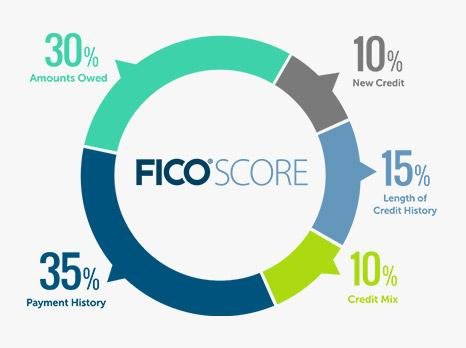Introduction
Your FICO score, a three-digit number, has a significant impact on your financial well-being. Whether you’re applying for a credit card, a car loan, or a mortgage, your FICO score plays a vital role in determining whether you’re approved and what interest rate you’ll receive. In this blog, we’ll break down the key factors that influence your FICO score, giving you a clearer understanding of how it’s derived.
Payment History
One of the most crucial factors in your FICO score is your payment history, which accounts for about 35% of your score. This reflects whether you’ve paid your bills on time, including credit cards, loans, and other debts. Consistent on-time payments boost your score, while late or missed payments can significantly lower it. To maintain a healthy FICO score, always pay your bills promptly.
Credit Utilization
Credit utilization, comprising around 30% of your FICO score, measures how much of your available credit you’re using. To maintain a good score, aim to keep your credit card balances low, ideally below 30% of your credit limit. High credit utilization can suggest financial instability and negatively impact your score.
Length of Credit History
The length of your credit history contributes about 15% to your FICO score. A longer credit history is generally considered more favorable, as it provides a more comprehensive picture of your financial habits. To build a solid credit history, it’s essential to keep older accounts open and in good standing.
Credit Mix
Diversifying your credit types, such as credit cards, installment loans, and mortgages, can have a positive impact on your FICO score. Credit mix accounts for approximately 10% of your score. A healthy mix shows lenders that you can handle various types of credit responsibly.
New Credit Inquiries
When you apply for new credit, such as a credit card or a loan, it generates a hard inquiry on your credit report. Each hard inquiry can slightly lower your FICO score, so be mindful of how often you apply for new credit. New credit inquiries make up about 10% of your FICO score.
Conclusion
Understanding the factors that contribute to your FICO score is a crucial step in managing your financial health. By paying your bills on time, keeping your credit utilization low, maintaining a lengthy credit history, diversifying your credit types, and being cautious with new credit inquiries, you can improve and maintain a healthy FICO score. This, in turn, will help you secure better loan terms, lower interest rates, and overall financial stability. So, remember, taking steps to improve your FICO score today can pave the way for a brighter financial future tomorrow.


